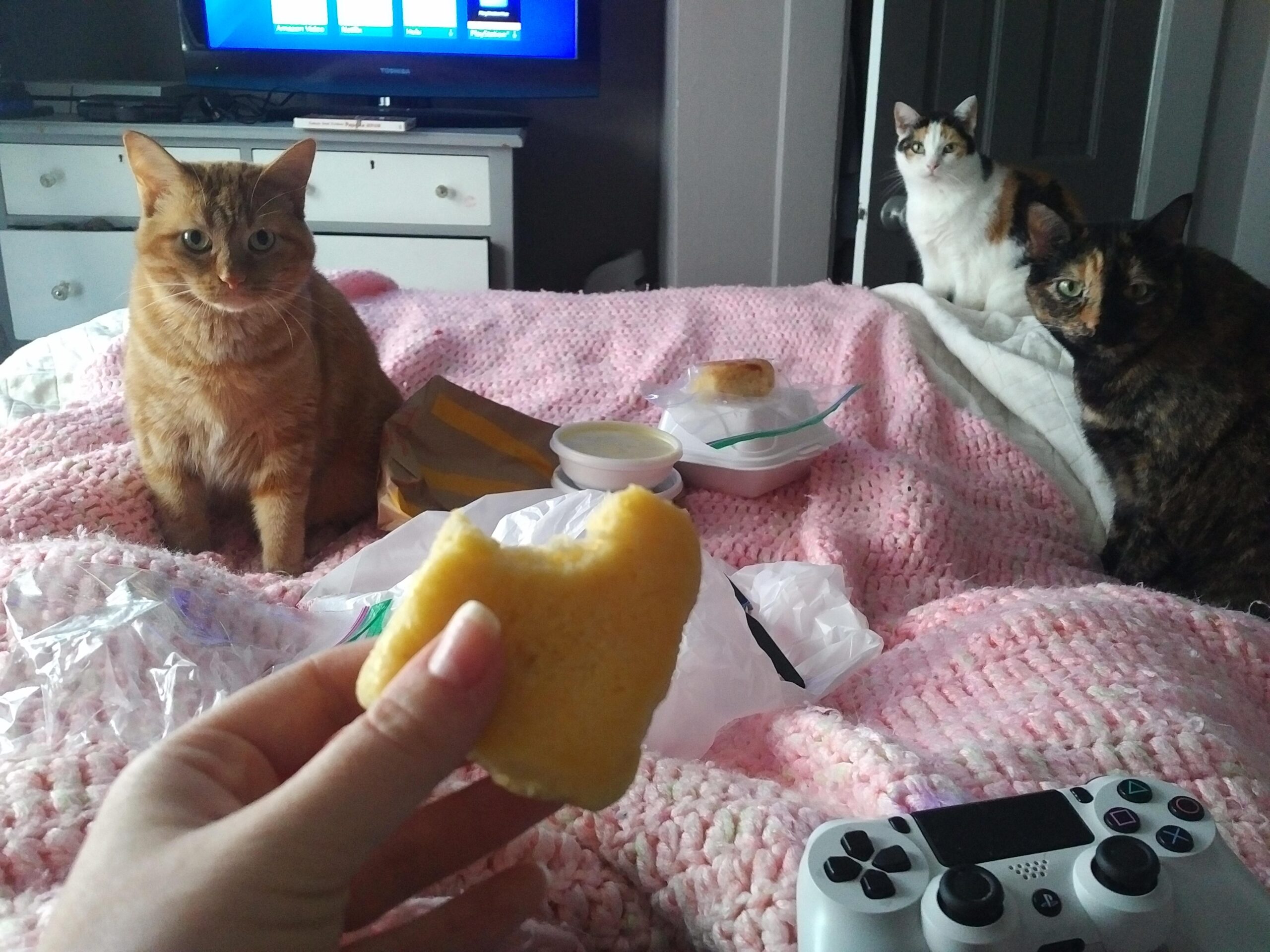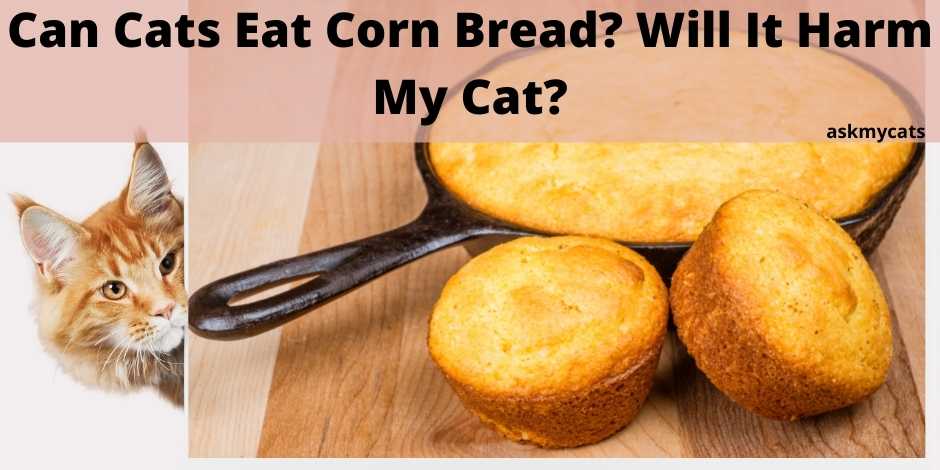Cornbread is a popular comfort food enjoyed by many people around the world. Its delicious aroma and soft texture make it a tempting treat for humans. But what about our feline friends? Can cats eat cornbread? In this article, we will explore whether cornbread is safe for cats to consume and discuss any potential risks or benefits associated with feeding it to them.

Is Cornbread Safe for Cats?
While cornbread may be safe for humans, it is not an ideal food for cats. Cats have specific dietary requirements that differ from ours, and their digestive systems are not designed to process certain ingredients found in cornbread. The main concern with feeding cornbread to cats is its high carbohydrate content.
Cats are obligate carnivores, which means they require a diet primarily consisting of meat. Their bodies are adapted to efficiently digest and absorb nutrients from animal-based proteins. Carbohydrates, on the other hand, are not a necessary component of their diet and can be difficult for them to digest.
Potential Risks of Feeding Cornbread to Cats
Feeding cornbread to cats can pose several risks to their health. The high carbohydrate content in cornbread can lead to weight gain and obesity in cats. Obesity is a serious health issue that can increase the risk of various diseases, such as diabetes, heart problems, and joint issues.
Additionally, cornbread often contains ingredients that are harmful to cats. Some recipes may include onions, garlic, or other seasonings that are toxic to felines. These ingredients can cause gastrointestinal upset, anemia, or even damage to their red blood cells.
Furthermore, cornbread is typically made with cornmeal, which may contain mycotoxins. Mycotoxins are toxic substances produced by certain types of fungi and can be harmful to cats if ingested in large quantities. Symptoms of mycotoxin poisoning in cats include vomiting, diarrhea, lethargy, and loss of appetite.
Alternatives to Cornbread for Cats
Instead of feeding cornbread to your cat, it is best to stick to their regular diet of high-quality cat food that meets their nutritional needs. If you want to offer your cat a special treat, there are safer alternatives available.
You can consider giving your cat small pieces of cooked, unseasoned meat as a treat. Chicken, turkey, or fish can be a healthy and enjoyable snack for your feline companion. Just make sure to remove any bones, skin, or excess fat before offering it to them.
Conclusion
In conclusion, cats should not be fed cornbread as it is not suitable for their dietary needs. The high carbohydrate content, potential toxic ingredients, and risk of mycotoxin poisoning make it an unsafe choice for cats. It is important to prioritize their health and provide them with a balanced diet that consists of appropriate cat food.
If you have any concerns about your cat’s diet or nutrition, it is always best to consult with a veterinarian. They can provide you with personalized advice and recommendations based on your cat’s specific needs.
FAQs
1. Can cats have a small piece of cornbread occasionally?
It is not recommended to give cats cornbread, even in small quantities. The high carbohydrate content and potential toxic ingredients can be harmful to their health. It is best to stick to their regular diet of cat food.
2. What should I do if my cat accidentally eats cornbread?
If your cat accidentally consumes cornbread, monitor them closely for any signs of gastrointestinal upset or other symptoms. If you notice any unusual behavior or if they develop any health issues, contact your veterinarian for guidance.
3. Are there any safe human foods that cats can enjoy as a treat?
Yes, there are some human foods that cats can enjoy as an occasional treat. Cooked, unseasoned meat such as chicken, turkey, or fish can be a safe and enjoyable snack for cats. Just make sure to remove any bones, skin, or excess fat before offering it to them.
4. Can cornbread cause allergies in cats?
Cornbread can potentially cause allergies in cats, especially if it contains ingredients such as wheat or corn. Cats can develop food allergies or sensitivities to certain ingredients, so it is best to avoid feeding them foods that may trigger an allergic reaction.
5. What are the signs of mycotoxin poisoning in cats?
Signs of mycotoxin poisoning in cats may include vomiting, diarrhea, lethargy, loss of appetite, and neurological symptoms. If you suspect your cat has ingested mycotoxins, seek veterinary attention immediately.

